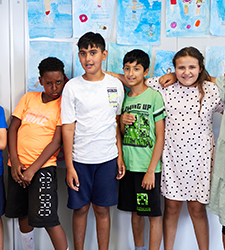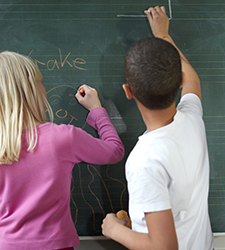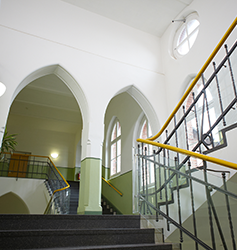Projects

Resilience
The Resilience project aims to evaluate two mental health promotion programmes and their implementation in everyday school life. The two support programmes are implemented by multi-professional teams (school psychologists, teachers, etc.). The results of the evaluation may help to optimise the implementation of school-based prevention programmes in the future.

RetSeL
The RetSeL project investigates self-regulation strategies in primary school mathematics. In particular, it aims to investigate why learners differ in their use of strategies in arithmetic and to take a closer look at the underlying cognitive and motivational-affective learning processes in arithmetic. A particular focus of the project is to identify specific features of such learning processes in learners with learning and attention difficulties.

RifA
The project is focused on the question what makes a childhood shaped by poverty particularly vulnerable. The research interest aims to the questions if children are different effected by vulnerability and transgression than adults as well as how the spatial-structured conditions of the growing up of children have an influence on it.

RiSE
The project RiSE deals with ethnic and social inequalities at school entry.

Rocket
The Rocket project investigates the relationships between orthographic knowledge and individual reading and spelling development in German-speaking second graders. The project will also investigate other relevant predictors of written language acquisition, such as phonological awareness, auditory memory and naming speed. The planned longitudinal analysis will contribute to a better understanding of the role of orthographic knowledge in the development of reading and spelling performance.

SASCHA
The project SASCHA studies the adaptation of the transition from primary to secondary school. Specifically, daily academic and social challenges of the transition as well as coping mechanisms are studied.

SCESAM
The project SCESAM investigates when and how children get familiar with the regularities that characterize our daily life. These regularities, that for us adults often seem obvious, comprise for instance, that the milk belongs in the kitchen and not in the bedroom.

Schulreifes Kind
Scientific evaluation of a concept of compensatory educational offers for children in pre-school and primary school for the Ministry for Culture, Youth and Sports of the federal state of Baden-Wuerttemberg.

SchuWaMi
The SchuWaMi project investigates how schools in Germany have reacted to the increased admission of refugee children and young people, which institutional change processes have taken place and are still taking place in this context, and to what extent and how schools succeed in promoting the social participation of children and young people with refugee experience.

ScriVo
The ScriVo (lat. scribere and lat. vocali) project investigates whether there is a relationship between the auditory discrimination skills of primary school children with German as a second language for long and short vowels in German and their written language skills, in particular when writing elongation graphs (to mark long vowels) and double consonants (after short vowels).